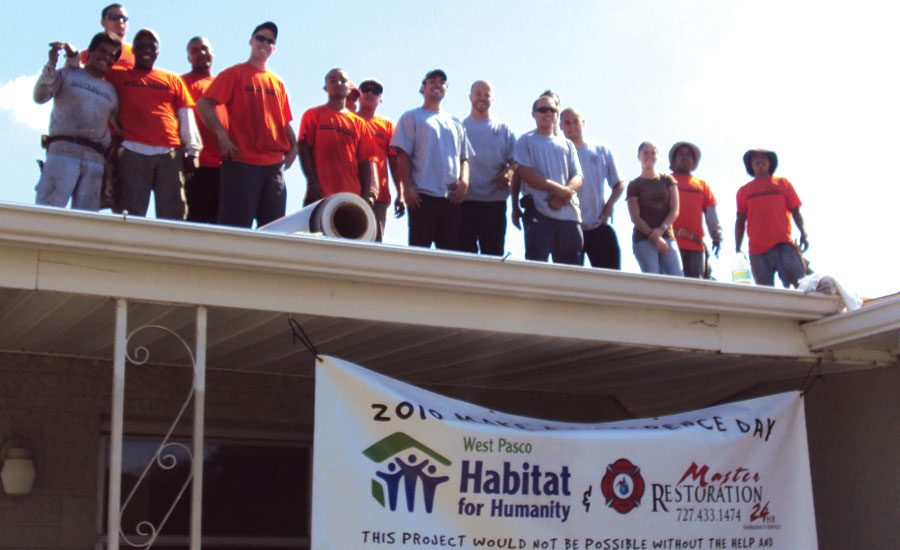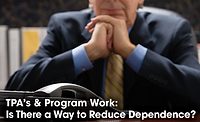Most people in this industry have an interesting journey – a story to tell of how they got here; how they landed in a business that is all about others, and not ourselves. It also doesn’t take long for the good eggs in this industry to spot a bad egg in the mix.
My journey in the restoration industry began 14 years ago – working for a friend’s remediation company in Clearwater, Fla., while also doing missionary work. However, it didn’t take long for me to notice some questionable practices. There was too much “cut and paste” rather than personal interaction – something I knew all along was vitally necessary for a victim in the midst of a catastrophe. So I went into the private industry, and began working with small companies, eager to make a change – a difference. This is when I found my calling: become a real, personal advocate for people in need by applying technology and best practices, rather than focusing on profit.
Today, I own my own company, Master Restoration, and truly believe our business model is unlike any other. Here is why: our Insurance Guarantee. It states that if we come out to your property and begin loss prevention with you, if for whatever reason your insurance claim is denied, or there is lack of coverage, we won’t charge you to restore your property.
How can we do this? It’s the commitment to our mission statement: “To be a devoted hero to our community when disaster strikes – 24/7”
We’re not in this solely to make money. We’re looking to help people in our local community when they need us most. As long as we stay true to our passion and values, everything will work out. We do it because it’s the right thing to do. Everyone in the company has our mission statement memorized. It is what we get up every day to do. This statement is addressed at every meeting we have, and everyone understands that our first objective is to help people in their time of greatest need.
I’m especially sensitive to seniors here in Florida. Their homes are all they have – in some cases, it’s their only investment, so we want to be there to help whenever we can, without asking, “What’s in it for us?”
Hiring Employees
We often hire skilled tradesmen who are down on their luck, and get them to work side by side with our established team, teaching them the basics of disaster remediation. We teach them our philosophy out in the field and internally so that they can also have something to give back.
Almost everybody who works for us is a success story. We’ve taken people who were down on their luck a few years ago, with $10 left to their name, and now they’re buying houses and vehicles. They used to ride their bike to work and now they can stand on their own two feet and provide for their families. There’s nothing more gratifying to us as owners than sharing that experience with our employees who make those accomplishments.
We are all about the community. It’s not about making money, it’s about doing the right thing. And if you know you’re doing the right thing, everything else will fall into place.
Whoever we hire truly needs to be “part of us” – they have to agree that it’s about the people rather than the money. So during slow times, when someone might work only 30 hours a week, we’ll pay them for 40 hours, and they spend that extra time at a charity of their choice in the local community – like Habitat for Humanity, Homeless Empowerment Project, or services for the veteran community. So every week, our guys are not only working for us, they are working in the community to improve it.
Community Involvement
The Master Restoration team is highly involved in a number of local charities. I am on the Board of Directors for Habitat, so I’m very involved in their construction committee. We’re also involved in Clothes to Kids - which my mother-in-law founded. It’s dear to our hearts because of the kids.
Sometimes people will call Habitat for Humanity and ask for help with something like a broken toilet, or mold. Since that’s not something that Habitat does, they call us, and one of our guys will go and help them out. No matter what someone’s financial condition is, our goal is for them to have a clean, safe home to live in. We focus on the entire Tampa Bay area, and have cleaned up homes for single moms with limited income, just so their families have a clean, safe place to raise their kids in our community.
PROJECT RAIN
Two years ago we created PROJECT RAIN. We bought hundreds of umbrellas, and when it was raining, we’d give them out to those in need. We always keep 3-4 umbrellas in our vehicles.
RAIN means “restoring all in need.” We want to expand beyond that – it’s not just about umbrellas, it’s about helping the community, like buying a cup of coffee for the next person in line, suggesting a “pay it forward” philosophy to take PROJECT RAIN to the next level.
We’re trying to get restoration companies from all over the country to do something similar, with another program we teamed up with called "Restoring Kindness." Maybe this article will be the start!
Facing a Major Threat in Florida
There is a lot of corruption that deals with falsifying claims. A big threat to our industry here in Florida is insurance companies who have started their own restoration companies, eliminating the need for franchises or private independents like ourselves.
Because each company has its strengths and weaknesses, insurance companies may not mesh very well from a contractor’s standpoint, but when they buy out restoration companies, they’ve got control by keeping the internal staff, getting the company to undertake all the tasks, while reporting directly to the insurance company.
This is unusual because it is only happening in Florida. And unfortunately, it’s growing. It started two or three years ago with one company and now three or four insurers are doing it. We were interviewed by one of these insurance companies to be their primary carrier. They wanted to essentially buy us out. I questioned the claims consultant about the integrity of that, and they called it a grey area – maybe not completely ethical, but it would take seven to eight years to get caught, and even then, all they might get would be a slap on the wrist in penalties. So compared to the amount of money they could save, they say it would be worth it to them.
From the very beginning, we’ve run our business by putting people before profit. If we could get the industry as a whole to refuse to work with these fraudulent companies, and focus on using the latest innovation to restore properties and truly care for those in our communities, it will not only minimize down time, but also reduce the cost of the claim.






Report Abusive Comment